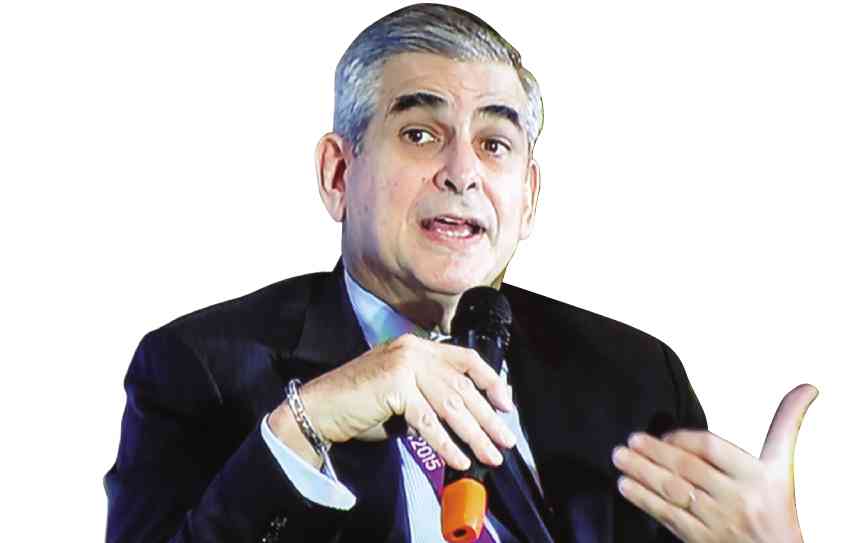From Abac, some ways to inclusivity
MORE than a buzzword, inclusive development has become a basic necessity, especially in populations divided into the so-called “1 percent” rich and the “99 percent” others, and world leaders will focus on it in Manila during the Asia-Pacific Economic Cooperation (Apec) summit.
That the inclusive business concept had been adopted as a theme during the Manila hosting of the Apec meetings was due in part to the efforts of a group of select business leaders called Apec Business Advisory Council (Abac).
Inclusivity is a priority issue for Abac this year with its theme “Resilient, Inclusive Growth: A Fair Deal for All.”
In a letter to Apec Economic leaders addressed to President Aquino as this year’s Apec chair, Abac submitted its recommendations for 2015.
It says in part: “We support your recognition of the key role of micro, small and medium enterprises, which account for over 97 percent of enterprises and contribute significantly to employment in Apec economies. We call for further efforts to address barriers inhibiting the participation of these enterprises in cross-border trade and global value chains, in particular by promoting e-commerce, taking steps to enhance their access to finance, and boosting innovation through partnerships and networking among innovation systems.”
Article continues after this advertisementThe lead signatory is Abac chair, also chief executive of Magsaysay Maritime Corp., Doris Magsaysay-Ho.
Article continues after this advertisementPut simply, inclusivity “is getting more people and more sectors into the economic growth stream,” says Jaime Augusto Zobel de Ayala, a member of Abac Philippines (together with Magsaysay-Ho, Tony Tan Caktiong, and Guillermo Luz) and co-chair of the Abac Sustainable Development Working Group.
There are methodical means of achieving it, adds Zobel, chair and chief executive of Ayala Corp.
One way is to develop micro, small and medium enterprises (MSMEs), which operate mostly outside Metro Manila, and extend their capabilities.
This can be done by improving the transport sector, for example, so it becomes cheaper to bring goods to the MSMEs, and consequently MSMEs can lower the prices of their goods.
The result will be a wider market that MSMEs can reach. In short, more people are included in the growth chain, and this can be replicated many times and in many other places, Zobel says.
Zobel himself has initiated inclusive business platforms in Ayala group.
Citing Manila Water’s Tubig Para Sa Barangay, this program has allowed community-based cooperatives to be involved as part of the supply chains and as business partners.
Ayala’s banking unit, Bank of the Philippine Islands, is working together with the Asian Development Bank to roll out its Student Financing Project and has also established BankO to reach out to the previously unbanked through financial technology innovations.
In addition, Ayala Land has expanded toward affordable and socialized housing, launching two new residential brands that cater to lower price points.
Improving the transport sector, including transport infrastructure, also benefits the housing market, he adds.
As more places become more accessible, housing becomes more affordable for more people, he says.
The opening up of international trade, which is the primary Apec objective, also presents opportunities for MSMEs, especially as a result of the developments in two other fields: technology and human capital, Zobel says.
“Telecom technology enables our MSMEs to do business in markets overseas,” he says. “Thanks to the service skills that we have developed, as well as to a technology shift, MSMEs can fill service gaps in the international markets,” he adds, citing as examples a 200-person enterprise in Cebu providing services to a company in Saudi Arabia, and a similarly well-skilled outfit in Metro Manila doing financial analysis for an investment banking group in New York.
“With our service skills, we have created our space in the global market for services,” he says.
Skills development should be sustained and entrepreneurship promoted, he adds, and the key lies in “education, the solution for the future.”
Magsaysay-Ho elaborates: “The convergence of global markets with technology is making it possible for anyone to benefit from global trade, but we should focus on building the systems to support them. This will need to include an elementary educational system that emphasizes science, technology, engineering, and mathematics. The opportunities are changing so quickly, and we must ensure our next generations have a chance to participate and benefit.”
These and other ABAC ideas on inclusivity are reflected in Apec policies.
An Apec statement says inclusive growth strategies will include “investment and infrastructure that reach out to more people; education that enables more people to enter productive employment; and will ensure that these people can both gain a stable income and become members of the consumer class.”
